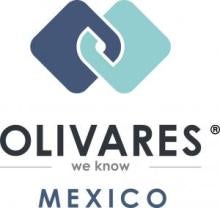Under Mexico’s General Law of Commercial Entities (hereafter referred to as “the Law”), all shareholder or partner meetings of a company are required to take place at the corporate address outlined in the company’s bylaws. Failure to adhere to this mandate results in the meeting being declared null and void, unless an overriding force majeure circumstance is present.
Nonetheless, a significant shift occurred on October 20, 2023, when a decree amending various aspects of the Law was issued and published in the Official Gazette of the Federation, a key communication tool of the Mexican government.
This reform, a landmark modification to the Law, came into effect the day subsequent to its announcement, with the exception of the amendment to the second paragraph of Article 81 of the Law, which will be effective six months post-publication. One of the notable elements of this reform is the authorization of electronic, optical, or other technological means for conducting shareholder/partner meetings and board of directors’ sessions in Mexico, provided the following conditions are met:
-
The company’s bylaws must explicitly permit the use of these mechanisms.
-
The technological platform must ensure seamless, simultaneous participation of attendees, akin to a traditional in-person meeting.
-
There must be adequate measures or mechanisms in place to facilitate access, verify attendee identities, and record their votes, while maintaining appropriate evidence of the same.
The primary question that emerges from this change is whether bylaws should be amended to accommodate “e-Assemblies” in the Mexican context. The reform stipulates that partners/shareholders can conduct e-meetings, provided all shareholders agree to this and the required electronic, optical, or other technological resources are accessible.
By adhering to these guidelines, a meeting conducted through electronic, optical, or other technological means will not be deemed null and void in Mexico, even in the absence of a force majeure event.
Additionally, meeting notifications, besides being issued via the electronic system established by Mexico’s Ministry of Economy or in accordance with the company’s bylaws, may be distributed to shareholders/partners through electronic or other technological means, provided they are approved in the bylaws.
Lastly, the minutes of these meetings must be properly documented in the respective corporate record book and signed by the Meeting’s President and Secretary, as well as any attending Examiners, ensuring adherence to the legal practices within Mexico, resulting in the massive use of the e-signature certification platforms among which DocuSign stands out.




 />i
/>i
